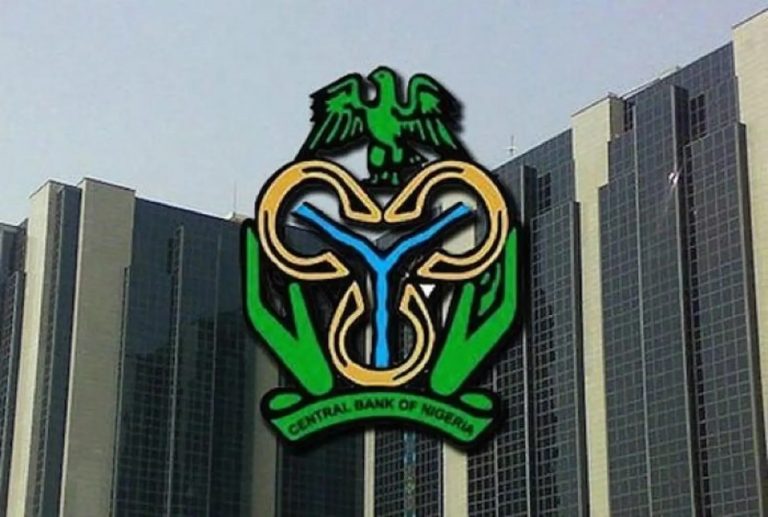
The Central Bank of Nigeria (CBN), has warned Nigerian banks and other financial institutions in the country to be wary of transactions from Russia, Iran, the Democratic People’s Republic of Korea, and Cameroun.
The apex bank via a circular signed by the Director, Financial Policy and Regulation Department, Chibuzo A. EFOBI stated that financial institutions in the country, must apply due diligence and implement counter-measures when dealing with transactions from the above-mentioned countries.
This is coming after the Financial Action Task Force (FATF), listed these counties as high-risk jurisdictions, subject to Call for action.
Register for Tekedia Mini-MBA edition 19 (Feb 9 – May 2, 2026): big discounts for early bird.
Tekedia AI in Business Masterclass opens registrations.
Join Tekedia Capital Syndicate and co-invest in great global startups.
Register for Tekedia AI Lab: From Technical Design to Deployment (next edition begins Jan 24 2026).
The circular reads in part,
“The attention of banks and other financial institutions is drawn to the outcomes of the Financial Action Task Force (FATF) Plenary conducted from June 21-23, 2023, and the subsequent addition of Cameroon, Croatia, and Vietnam to the list of jurisdictions under Increased Monitoring.
“Furthermore, Democratic People’s Republic of Korea, Iran, and Myanmar remains on the list of high-risk jurisdictions subject to “Call for Action”. Consequently, enhanced due diligence should be applied, and in severe cases, countermeasures may need to be implemented to safeguard the international financial system. Additionally, we would like to emphasize that the suspension of the Russian Federation’s membership in the FATF remains in effect.
“Fls are to remain vigilant and be alert to possible emerging risks resulting from the circumvention of measures taken to protect the international financial system In light of these developments. Fls are directed to Note all addition to jurisdictions under Increased Monitoring as well as high-risk jurisdictions subject to a “Call for Action” and take necessary measures to mitigate these risks effectively”.
The Central Bank of Nigeria is therefore urging financial institutions in the country to stay vigilant and alert to emerging risks resulting from attempts to bypass measures designed to safeguard the international financial system following the FATF warning.
The Financial Action Task Force (FATF) is the global money laundering terrorist financing watchdog. The FATF’s process helps protect the integrity of the international financial system by issuing a public warning about the risks emanating from the identified jurisdictions (Russia, Iran, the Democratic People’s Republic of Korea, and Cameroun).
These public warnings also put pressure on the identified jurisdictions to address their deficiencies in order to maintain their position in the global economy.
Democratic People’s Republic of Korea
Since February 2020, in light of the COVID-19 pandemic, the FATF has paused the review process for Iran and DPRK, given that they are already subject to the FATF’s call for countermeasures.
The FATF remains concerned by the DPRK’s failure to address the significant deficiencies in its anti-money laundering and combating the financing of terrorism (AML/CFT) regime and the serious threats they pose to the integrity of the international financial system.
Iran
In June 2016, Iran committed to address its strategic deficiencies. Iran’s action plan expired in January 2018. In February 2020, the FATF noted Iran has not completed the action plan. Given Iran’s failure to enact the Palermo and Terrorist Financing Conventions in line with the FATF Standards. The FATF fully lifts the suspension of counter-measures and calls on its members and urges all jurisdictions to apply effective counter-measures, in line with Recommendation 19.
Iran will remain on the FATF statement on [High Risk Jurisdictions Subject to a Call for Action] until the full Action Plan has been completed.
Russia
The FATF expresses its deepest sympathies for the people of Ukraine and continues to deplore the huge loss of life and needless destruction caused by the ongoing Russian invasion. The Russian actions run counter to the FATF core principles aiming to promote security, safety, and the integrity of the global financial system.
They also represent a gross violation of the commitment to international cooperation and mutual respect upon which FATF Members have agreed to implement and support the FATF Standards.
Jurisdictions under increased monitoring are actively working with the FATF to address strategic deficiencies in their regimes to counter money laundering, terrorist financing, and proliferation financing.
High-risk jurisdictions have significant strategic deficiencies in their regimes to counter money laundering, terrorist financing, and financing of proliferation. For all countries identified as high-risk, the FATF calls on all members and urges all jurisdictions to apply enhanced due diligence, and, in the most serious cases, countries are called upon to apply counter-measures to protect the international financial system from the money laundering, terrorist financing, and proliferation financing (ML/TF/PF risks emanating from the country.
The FATF has continued its work to revise the FATF Standards relating to asset recovery in line with its priority to strengthen countries’ measures to deprive criminals of their ill-gotten gains.
The FATF also aims to provide a new suite of tools that countries should use to effectively freeze, seize, and confiscate criminal property, both domestically and through international cooperation.
A key milestone was reached at its Plenary in early this year, to advance the reforms, which the FATF aims to approve in full in October 2023 related to Recommendations 4 and 38.



